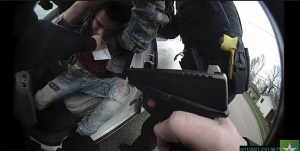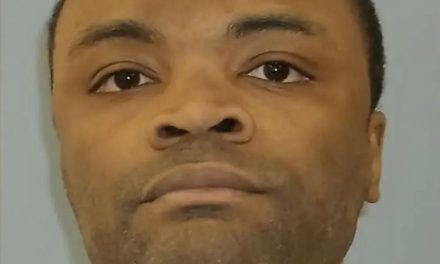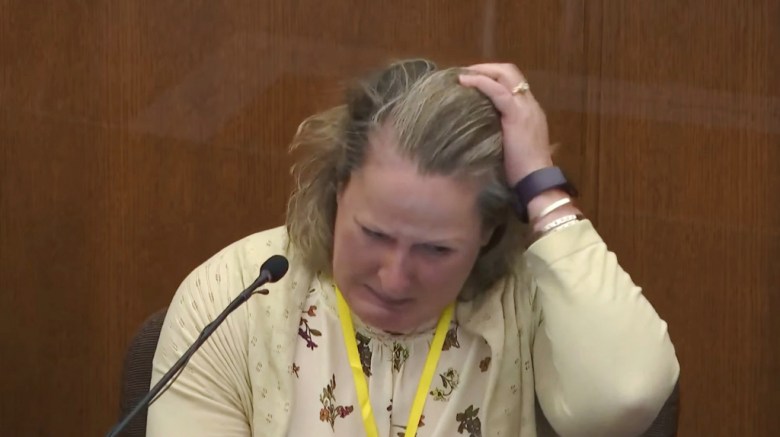
By
On Thursday, the seventh day of the Kim Potter manslaughter trial, the prosecution rested its case against the former Brooklyn Center police officer. Potter is on trial for shooting and killing 20-year-old Daunte Wright during an April 11 traffic stop. She has maintained that she mistook her gun for her Taser.
The defense called use-of-force expert Stephen Ijames to the stand first. Defense attorney Paul Engh walked Ijames through some of the highlights of his 44 years as a police officer in Springfield, Missouri, with emphasis on critical incidents and Tasers.
Ijames countered the testimony of use-of-force expert Seth Stoughton, who testified for the prosecution Wednesday that Potter’s use of force against Wright was inappropriate, even if she thought another officer was in the car, because of the risk to his passenger and bystanders. Ijames said he doubted that Wright would have been able to drive away if Potter had used her Taser.
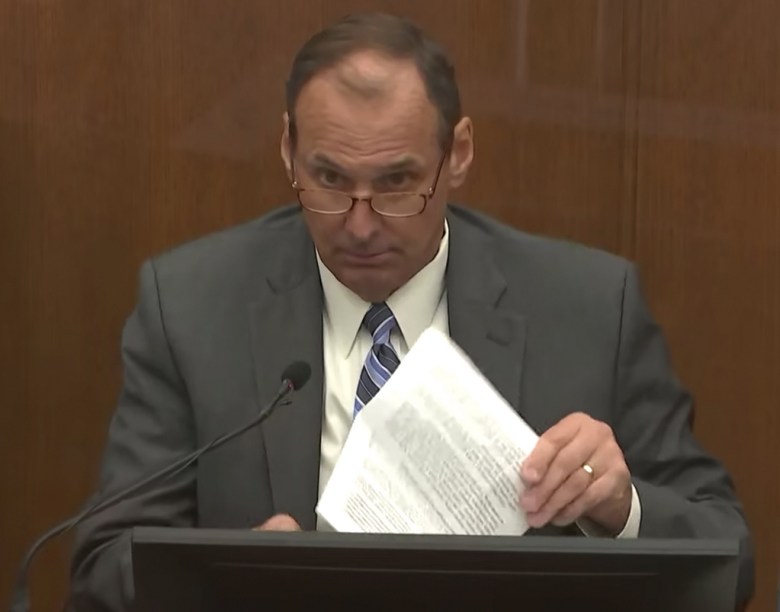
He also testified that the police had a legal obligation to arrest Wright due to his outstanding warrant for a weapons violation. He said it would be considered a “dereliction of duty” for police to let people with outstanding warrants evade arrest.
Also taking the stand was Tim Gannon, who was the Brooklyn Center Police Chief during the time of Wright’s killing. He and Potter both resigned a couple of days after the fatal shooting amid civil unrest and intense pressure from community members demanding Potter be fired. On the stand, Gannon said he resigned because “I would not immediately fire Kim Potter.”
Gannon testified that he saw no violation of policy after reviewing videos of the fatal shooting. He said that the use of force seemed reasonable to him because Sgt. Mychal Johnson was also leaning into Wright’s car at the time of the shooting and could’ve been dragged.
Gannon also said he and Potter were friends and told the jury about Potter’s volunteer work and other charitable efforts.
The defense called four other officers who took the stand to speak to Potter’s experience and character, including former Brooklyn Center Officer Colleen Fricke who was tasked with looking after Potter after she shot Wright. Calling her a mentor, Fricke said she observed Potter curled up, crying and clearly distraught over the shooting.
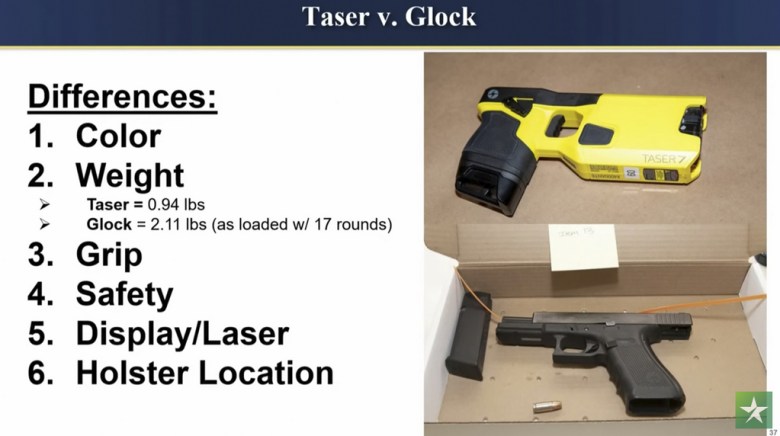
Both the prosecution and the defense agree that Potter made a horrific mistake when she pulled her Glock instead of her Taser and shot Wright in the chest.
The prosecution’s case rests on the idea that as a 26-year veteran of the police force and a trainer of officers, Potter should have known the difference between a Taser and handgun and acted in a reckless and negligent manner when she shot Wright.
The defense argues that although Potter made a tragic mistake, she would have been within her rights to use deadly force in this instance because Wright might have dragged another officer with his car.
Potter, 49, is charged with first-and second-degree manslaughter. She could face up to 25 years in prison if found guilty on both charges. She is expected to take the stand in her own defense.
“There’s no question that she did what she’s been accused of doing,” former FBI Deputy Director Henry McCabe told CNN’s Wolf Blitzer. “The question that’s really in front of the jury is whether or not she acted in a grossly negligent manner or a reckless manner.”
McCabe also noted that Potter taking the stand is not without its risks. “It’s a gamble; no question about it. But it’s one that could pay off for her. She shot Daunte Wright in the chest; it is on video so there’s no issue there.
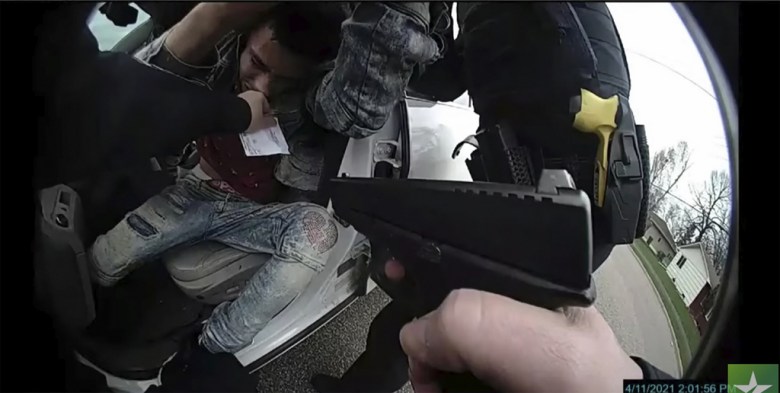
“But what she’s going to try to do here is to humanize herself in front of that jury to show her contrition, her sorrow, and her regret over this,” McCabe continued. “And in some ways, it’s a Hail Mary pass for some leniency and some compassion from the jury.”
McCabe called it “a dangerous move” that could go “horribly wrong for her” or work in her favor.
The defense will call two witnesses to the stand on Friday. One of those witnesses is expected to be Potter.
Help us Continue to tell OUR Story and join the AFRO family as a member – subscribers are now members! Join here!
The post Potter trial: prosecution rests its case; defense witnesses testify appeared first on AFRO American Newspapers .

